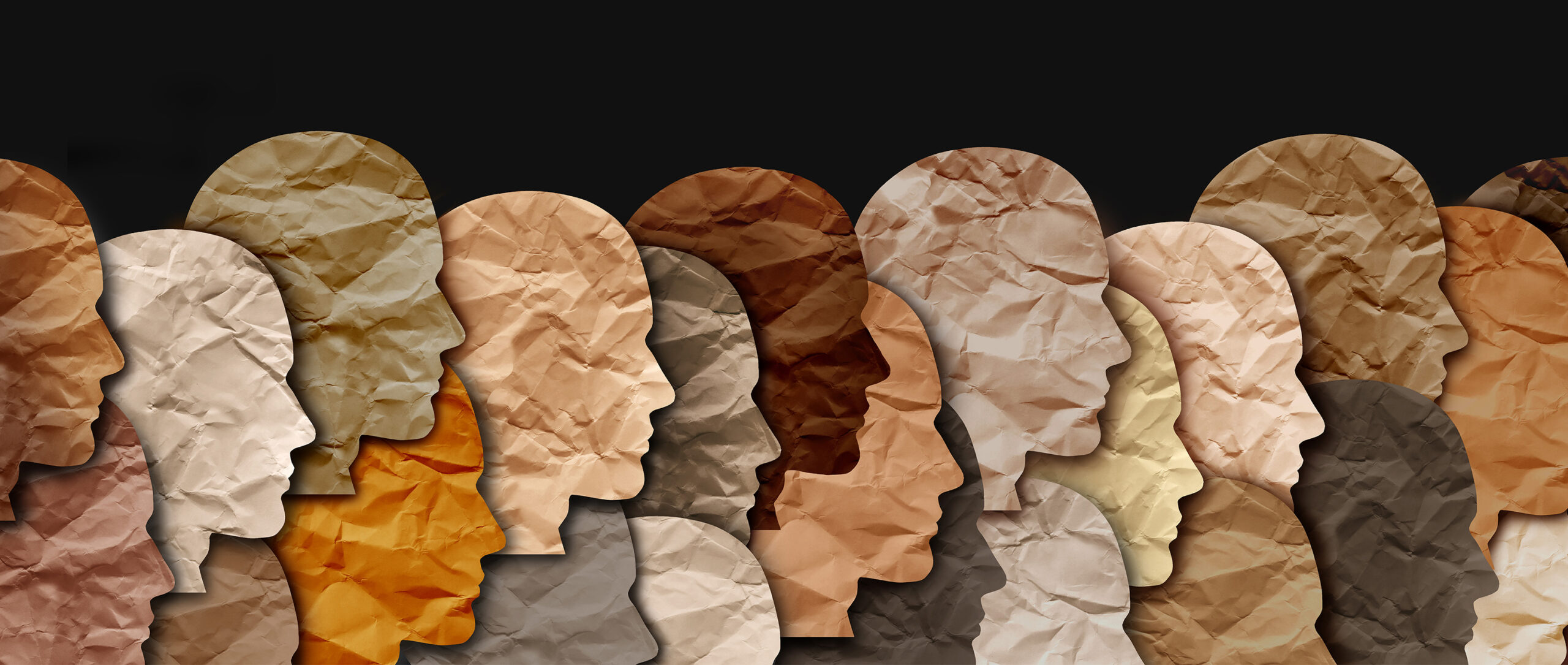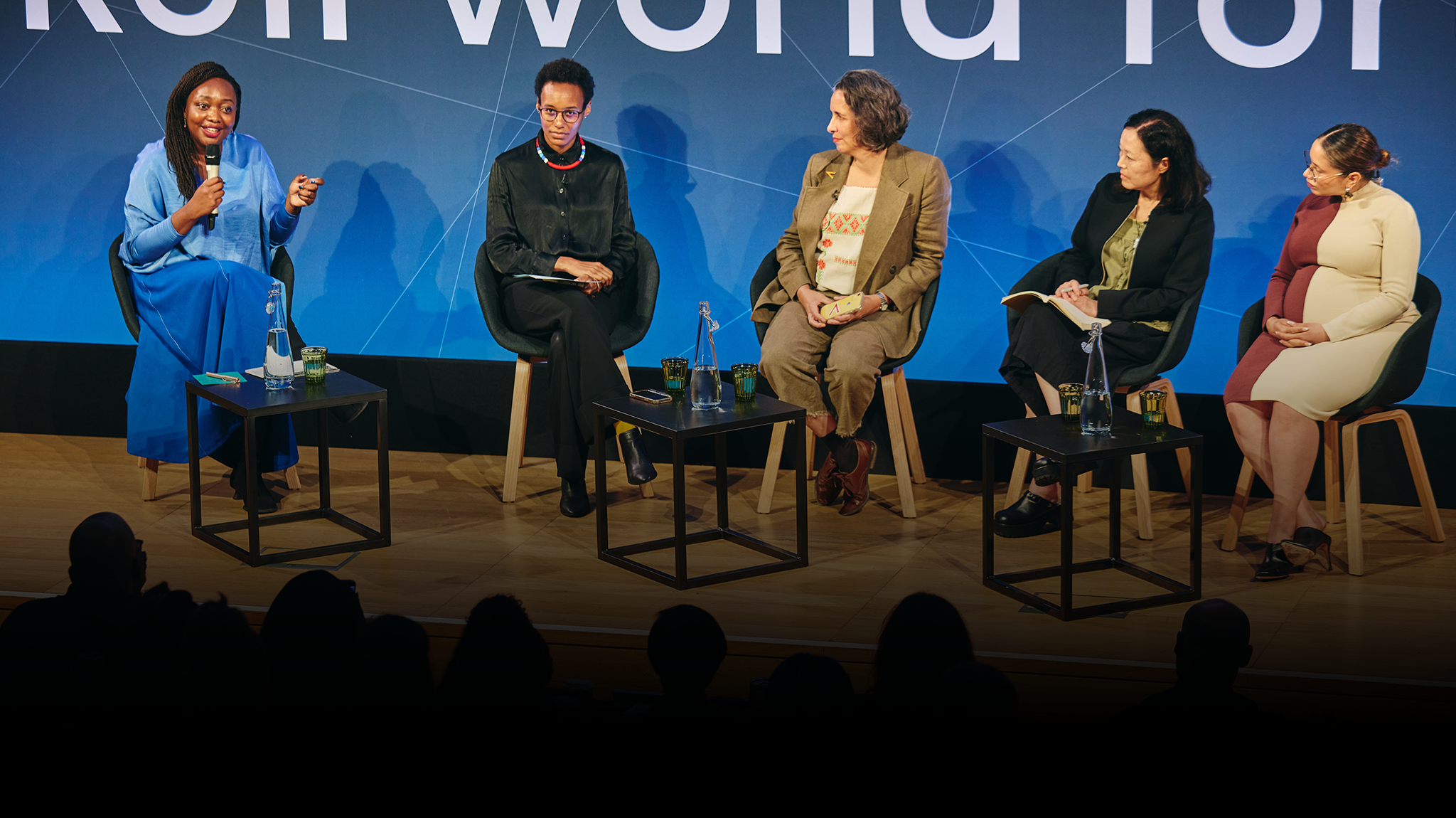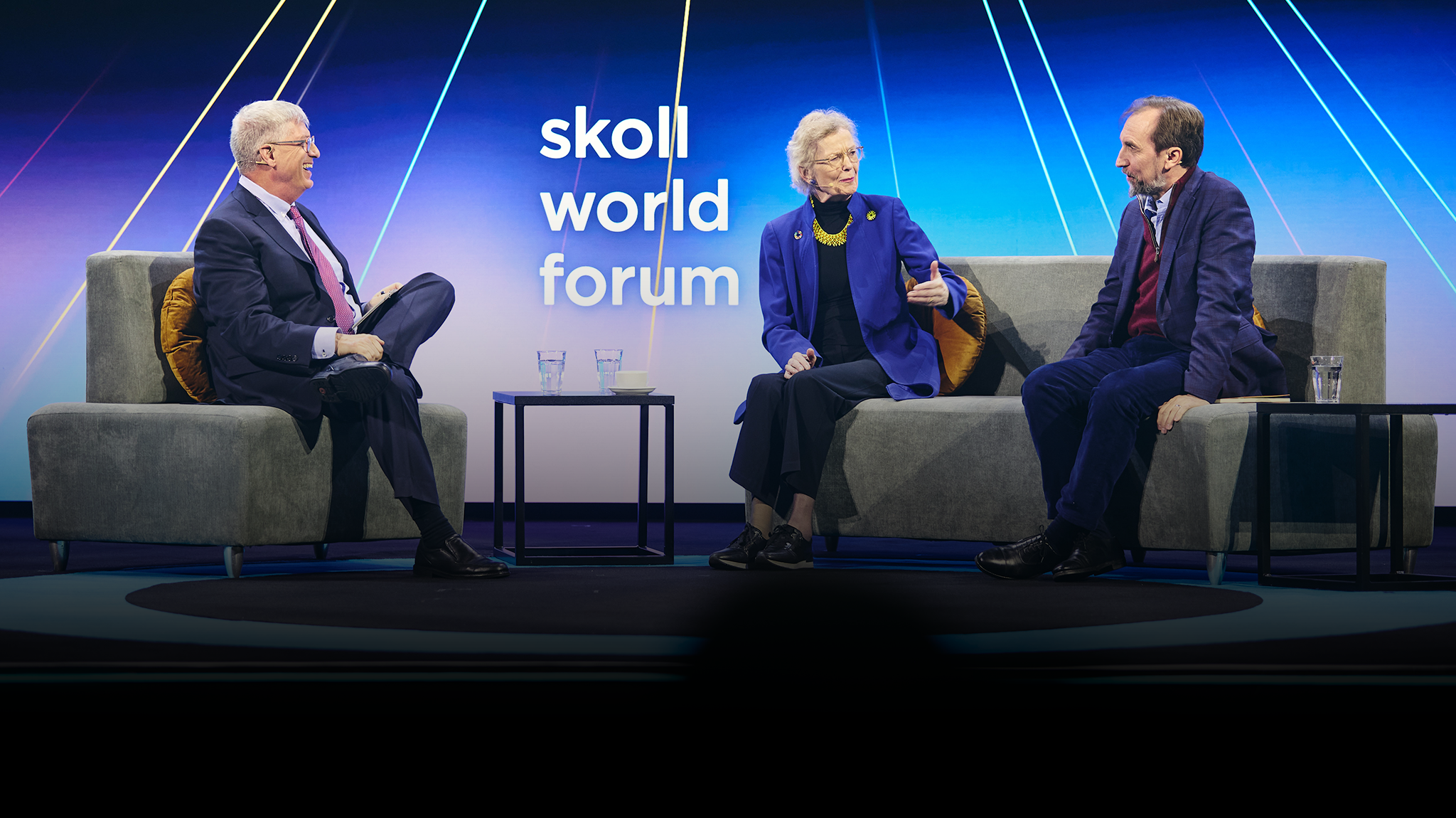Repairing the Past: What the United States Can Learn from the Global Transitional Justice Movement
Transitional justice is about the most difficult dilemmas facing a society during some of the most troubling and challenging moments of its history. It is applied when a country needs to examine its darkest moments and find a way forward to build a better future and create a more inclusive society.
In April, I participated in the Skoll 2021 World Forum panel “Against Forgetting: Historical Memory and Just Reconciliation.” The event was a call to preserve historical memory and truth as a means to address collective trauma. It was also a reminder of the importance of engaging in processes of transitional justice that advance accountability, build sustainable peace, prevent violence, and achieve reconciliation. Panelists discussed the Holocaust in Europe as well as atrocities in Rwanda, Sierra Leone, the former Yugoslavia, and many other countries including the United States.
While some people may feel uncomfortable or take issue with the idea of lumping the United States alongside these countries in the same category, the truth is that most countries around the world have had periods of devastating violence in their history and still carry with them legacies of massive human rights violations.
Transitional justice becomes relevant when a country has experienced profound criminality, when the vast scale of human rights violations has shattered the social contract between citizens and the state.
The dilemmas that face society as it confronts its past are social, political, legal, judicial, and ethical. And the various processes and measures a society may put in place to respond to these dilemmas are what we today call transitional justice.
How does society acknowledge large-scale, systemic violations? How can it redress them? How can it at last break the cycles of violence? What kind of reforms are needed to achieve equal justice for all, prevent conflict, and uphold and protect everyone’s basic rights and freedoms?
No one size fits all approach
Answering these questions is a complex challenge. It invariably requires going back through a country’s history to entrenched injustices and grievances that lie at the root of violence. Many countries around the globe have undertook, or are undertaking, transitional justice processes. Each country must find its way, designing its own processes and finding its own solutions, based on its unique historical and socioeconomic context. There is no “one size fits all” approach or recipe that can be copied and pasted here and there and applied in the same fashion.
The evolution of the transitional justice field over the decades has been incredible. Argentina and Chile embarked early upon the processes in the 1980s as they transitioned from authoritarianism to democracy. Post-apartheid South Africa broke ground and attracted international attention with its Truth and Reconciliation Commission. International tribunals were established in aftermath the genocide in Rwanda and the brutal war in the former Yugoslavia in the 1990s.
Early on, transitional justice was mainly pursued in countries emerging from war or dictatorship. In recent years, however, with the increased capacity and agency of victims’ groups and civil society organizations and with growing awareness about transitional justice and its importance, transitional justice processes are now front and center in policy debates, as part of peace processes such as in Colombia, or in countries where in conflict is ongoing, such as Syria.
Transitional justice in modern democracies
Meanwhile, demands for transitional justice mechanisms have intensified in modern and affluent democracies, such as Australia, Belgium, Canada, France, Spain, and of course the United States. These countries, too, grapple with legacies of massive human rights violations, and they have often normalized the resulting structural exclusion, marginalization, and injustice in their societies.
Today, the United Nations, the African Union, the European Union, and many individual countries have developed policies consolidating principles, standards, and guidelines to support transitional justices processes around the world.
Research shows that an absence of justice can fuel radicalism, and impunity is conducive to corruption, criminality, and authoritarianism. In fact, they create a vicious, self-perpetuating circle of violence and abuse. In other words, delivering justice and holding responsible actors to account can contribute immensely to the prevention of conflict, extremism, repression, and corruption.
“No peace without justice” is a chant that filled the streets of the United States last year following the murder George Floyd by police in May 2020. This same chant has animated protest movements and social and political upheaval in many countries around the world. The events shined an international spotlight on the biased and violent treatment of Black Americans by law enforcement and trigged a national reckoning with racism and police brutality in the United States. The demand for justice has never been greater, but the country remains sharply divided on whether and how to deliver it.
Reckoning with the past in the United States
We at ICTJ know from our experience that these calls for justice are for something far more encompassing than criminal accountability alone, though the latter is at times an integral and necessary part of the response. Delivering justice in such moments in a country’s history entails listening to the voices and demands of the victims. It calls for a society to reckon with its legacy of past abuses and to acknowledge its wrongdoings.
In the United States, this means confronting and considering the vast wealth of information about past abuses and the ways in which oppression, racism, and discrimination have persisted for centuries.
Delivering justice requires that society dismantle the structural inequalities and discrimination that allow violations to occur in the first place and reform the institutions—including law enforcement and the criminal justice, education, and health care systems—that reinforce and perpetuate the discrimination and inequality on a daily basis. It includes providing reparations to communities of color that have endured generational harms and engaging the entire nation in a dialogue about the truth of the past and a future where the human rights of all citizens are upheld equally.
During this past year, the general public, civil society, and political leaders at all levels have responded. In Congress, a growing number of representatives are clamoring to pass Bill HR40 that would establish a commission to study and develop reparation proposals for African Americans and H.Con.Res.19 calling for a commission on truth, racial healing, and transformation. Several states and cities have launched truth-seeking and reparations initiatives. Civic leaders and groups have also made important headway. So far, we have counted over 30 transitional justice initiatives across the country.
Perhaps, the United States finds itself today at a historic juncture and with a unique opportunity to address the legacy of its violent past.
Such a process often succeeds in these precise moments, when both societal demands and the political will align. That is why I think it is crucial to push hard now to advance the work as the political winds may again change.
The challenges facing the United States are not new. Many countries have confronted or are confronting similar obstacles. That said, the issues in the United States are complex, and we cannot simply apply the “South African model,” for instance, as a solution to achieve truth, justice, and reconciliation. However, learning from the successes and mistakes of other countries can certainly be useful in finding a distinctly “American way” to transitional justice and in helping the country acknowledge and redress the violations that still determine its present and future.
As Amanda Gorman wrote in her poem The Hill We Climb: “Because being American is more than a pride we inherit; it’s the past we step into and how we repair it.”



